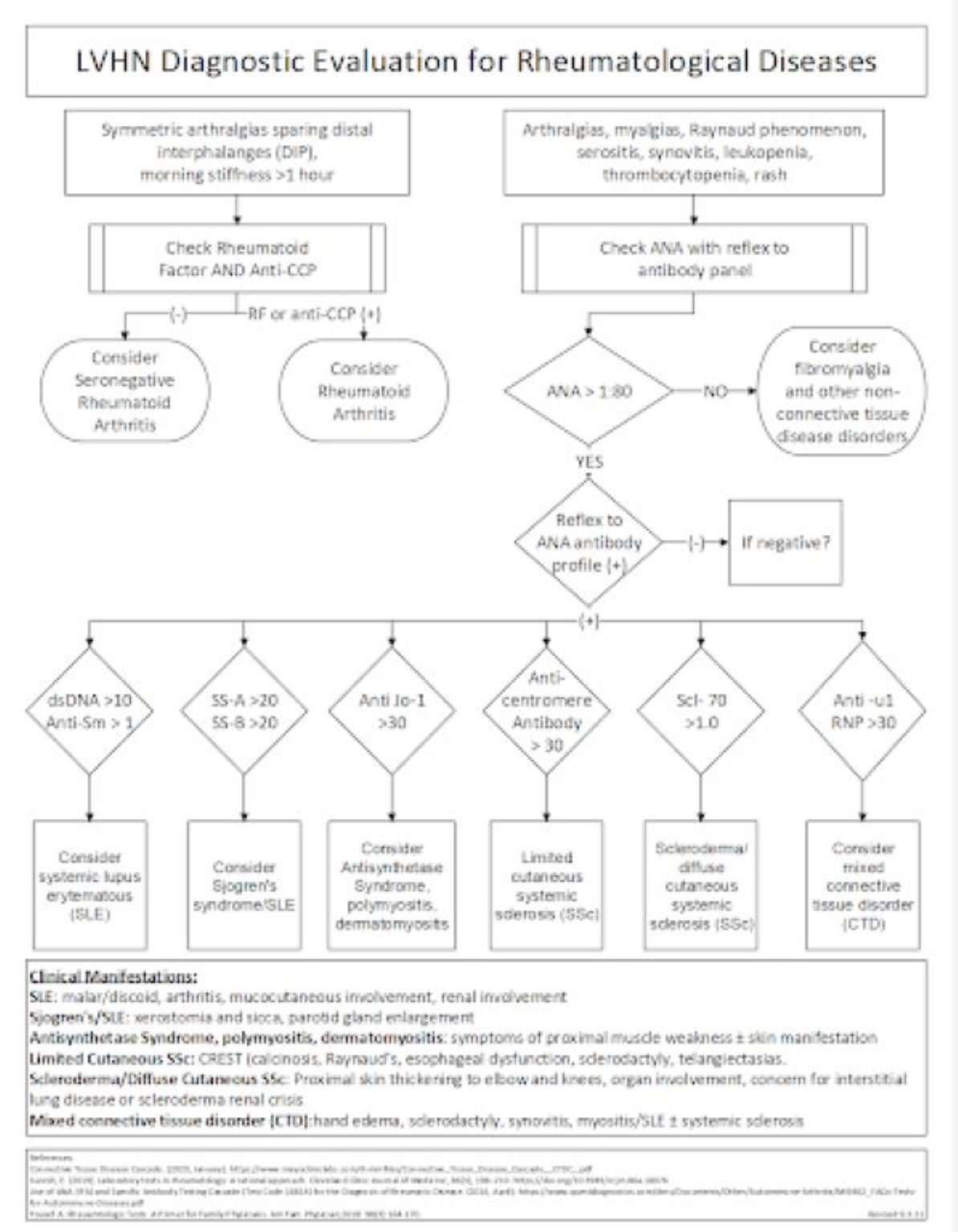Session Information
Session Type: Poster Session C
Session Time: 10:30AM-12:30PM
Background/Purpose: To manage patients In the current healthcare environment, objective data and laboratory tests drive medical decision making. This has led to an increase in inappropriate test utilization. Previously, Lehigh Valley Health Network (LVHN) instituted an order set for Antinuclear Antibody (ANA) serologic testing to facilitate more efficient work-up of a positive ANA. In the short term, this showed a significant decrease in inappropriate testing. Orders include ANA alone, ANA with Reflex where an ANA > 1:80 is reflexed to additional serologic testing, and Comprehensive ANA which includes the same serologic testing but no positive ANA requirement. Benefits of the ANA with Reflex panel include a rapid cost-effective diagnostic assessment. The cost of the Comprehensive ANA is $287.19 and an ANA reflex is $34.34. The goal of this quality improvement project was to determine ANA order frequency and appraisal of educational and electronic medical record (EMR) interventions for appropriate testing in the inpatient and outpatient settings.
Methods: ANA testing orders were reviewed from November 2020 to January 2024. Two different interventions were implemented in the inpatient segment of this project. The primary intervention was implemented 15 months into the project and included education of clinicians via EMR alert and removal of the comprehensive ANA order from order lists (Figure 1). In the outpatient setting, provider education was implemented via the same alert as above along with subsequent removal of the comprehensive ANA from clinician lists on February 28th, 2024. Inpatient data was further analyzed by specific departments. Chi-Square Analysis and comparison of proportions analysis were used to determine statistical significance.
Results: In the outpatient setting, the intervention reduced the total number of ANA tests from 15.9% of tests ordered to 7.4%, comprehensive ANA from 22.8% to 13.4%, and increased ANA reflex orders from 61.3% to 79.3% (Table 1). In the inpatient setting, the intervention reduced the number of ANA tests from 25.5% to 6.4%, comprehensive ANA from 33.3% to 2.1%, and increased ANA reflex orders from 41.3% to 91.5% (Table 2). $443,628 were spent on ANA testing prior to intervention which decreased to $134,102 in the 22 months after intervention. Comparison of proportions analysis between inpatient and outpatient testing demonstrated the inpatient intervention was statistically more successful. (P< 0.001).
Conclusion: Focused educational initiatives and EMR enhancements in the inpatient and outpatient setting at LVHN have significantly improved operational efficiency and cost-effectiveness of ANA testing protocols. The decrease in Comprehensive ANA testing led to significant savings for both patients and the healthcare system. This ANA testing intervention is not only applicable to our healthcare system, but could also be replicated by healthcare systems nationwide. Outpatient intervention has only recently occurred, but there is a noticeable shift in the amount of comprehensive ANA tests being ordered and this will continue to be analyzed moving forward.
To cite this abstract in AMA style:
Wolff B, Oh N, Slenker A, Zaffiri K, Mhaskar R, O'Brien M. Health System Improvement in Appropriate Test Utilization Involving ANA Testing in the Inpatient and Outpatient Setting [abstract]. Arthritis Rheumatol. 2024; 76 (suppl 9). https://acrabstracts.org/abstract/health-system-improvement-in-appropriate-test-utilization-involving-ana-testing-in-the-inpatient-and-outpatient-setting/. Accessed .« Back to ACR Convergence 2024
ACR Meeting Abstracts - https://acrabstracts.org/abstract/health-system-improvement-in-appropriate-test-utilization-involving-ana-testing-in-the-inpatient-and-outpatient-setting/



